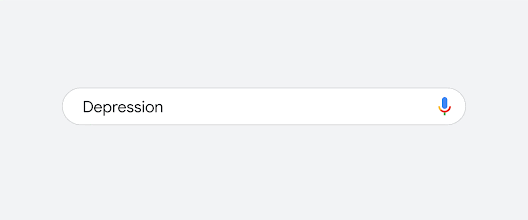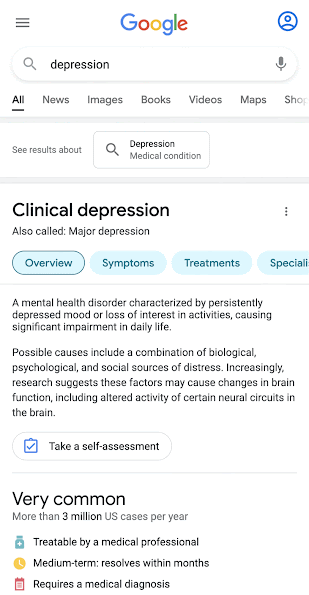How we’re helping Aussies in their search for support
Editor’s note: This post is co-authored by Rachel Bowes, Head of Crisis Services and Quality at Lifeline Australia and Jill Newby, Associate Professor at Black Dog Institute.

Early intervention and access to mental health support services are now more important than ever, following a difficult 14 months for Australians with bushfires, drought and COVID-19.
Search interest for "What is depression?" reached its highest peak in more than a decade in March 2020 in Australia, so there is a great opportunity to direct people to the support they need — right at the moment they are looking for information.
Starting today, anyone in Australia searching for depression can not only view trusted information on the condition, but also opt to take a 9-question self-assessment that is based on a clinically-validated questionnaire called PHQ-9 (Patient Health Questionnaire-9). This questionnaire is used by healthcare providers to evaluate someone’s level of depression and identify resources that would be most suitable to their needs.

After completing Google’s new self-assessment, people can see their risk for depression as well as connect with evidence-based resources, crisis hotlines, and additional support from our teams at Black Dog Institute and Lifeline.
With over 3 million people in Australia living with anxiety or depression, the more access to support that is offered the better. 1 in 5 Aussies will experience symptoms of mental illness in any given year – and roughly 60% of these people won’t seek help. So when organisations take steps to ensure people are aware that support is available and how to access them, we know it will help save lives.
Over the past year, Lifeline’s Volunteer Crisis Supporters have been on the frontline, holding people safe as they battle the invisible effects of disaster – the impact on mental health. At Lifeline, the ‘new normal’ is responding to over 3,000 calls every day. That’s a person in crisis now reaching out for support every 30 seconds.
Meanwhile the Black Dog Institute was quick to conduct research on how Australians were coping with the pandemic. Realising three quarters of participants said their mental health had worsened as a result of COVID-19, the medical research institute stepped up support through its online clinic offering telehealth support so everybody has the same access to support, no matter their location in Australia.
Collectively, the Black Dog Institute and Lifeline welcome new resources that help people better understand their condition and empower them to seek out appropriate mental health support services. We are glad to work with Google to extend existing, clinically-validated tools to meet the needs of Australians, especially during this critical time.




